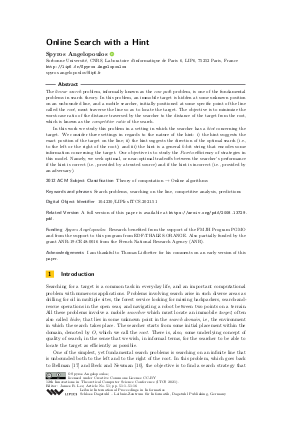LIPIcs.ITCS.2021.51.pdf
- Filesize: 472 kB
- 16 pages

 Creative Commons Attribution 3.0 Unported license
Creative Commons Attribution 3.0 Unported license









































Feedback for Dagstuhl Publishing